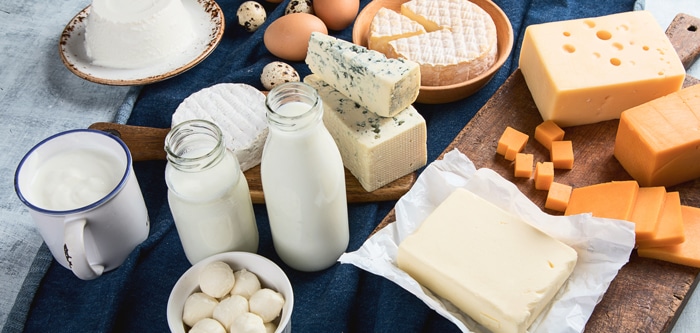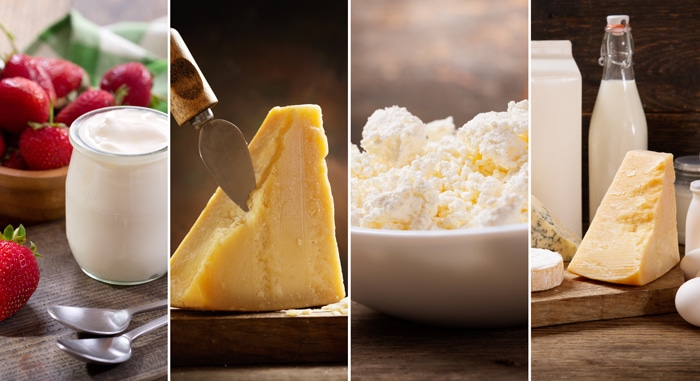

Sugar is the new fat. The days of low-fat and fat-free have been replaced with zero sugar or no added sugar labels on nearly every packaged product we consume. Most experts would agree that sugar additives aren’t conducive to health, but what about the natural sugars found in fruit, sweet potatoes—or even dairy? A study published in the American Journal of Clinical Nutrition set out to determine how sugar consumption affects cancer risk. What they found may make you think twice the next time you sprinkle parmesan on pasta or butter a slice of toast.

Over 101,000 participants were included in this study taken from the French NutriNet-Santé prospective cohort study (2009-2019). Adjustments were made for known cancer risk factors including sociodemographic, anthropometric, lifestyle, medical history, and nutritional factors. Researchers found an increase in cancer risk was associated with higher intakes of sugar—particularly in the form of added sugars and sugars from dairy products. These include fluid milk, coffee creamer, cheese, butter, cream cheese, ice cream, and other common dairy items.
It is seminal to note that while milk sales may be down, cheese is on the rise. This is dangerous, as cheese is highly concentrated milk. While eight ounces constitutes one serving of milk, it only takes 1.5 ounces (or about one slice) to make up a serving of cheese. Two slices of cheese toast in the morning, a heavy sprinkling of cheese on a salad for lunch, and cheese-topped pasta or pizza for dinner well exceeds three servings, piling on the sugars that could—according to this study—elevate cancer risk.
Researchers found an increase in cancer risk was associated with higher intakes of sugar—particularly in the form of added sugars and sugars from dairy products.
There are many people—mostly of Caucasian descent—who can consume dairy products and claim that they feel fine afterward. They believe dairy is an essential part of their daily nutritional needs, and that their health would suffer immensely without this bovine infant formula. What they do not realize is that their dairy consumption could be setting them up for a disease-ridden future.

It is often impossible to point to the exact thing that triggered cancerous disease, but it is easy to put simple risk-reducing practices in place. Ditching dairy is an immediate cancer prevention practice everyone can do. When it comes to cancer, that slice of cheese simply is not worth the risk.
This article was originally printed on switch4good.org.
Copyright 2026 Center for Nutrition Studies. All rights reserved.